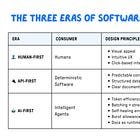The Managers Path
Hey, Luca here, welcome to a new edition of Refactoring! Every week you get:
Here are the latest editions you may have missed: To access all our articles, library, and community, subscribe to the paid version: Hey there! This is a Book Edition 📚 — where I publish our review + summary of a famous non-fiction book in our space. It is made possible by the book club in the community, where every two months we decide on a non-fiction book to read, and we review it together in a live event at the end of the period. This time we're reviewing The Manager's Path, by Camille Fournier — a book that holds a special place in my heart. As a Refactoring reader, you should already be familiar with Camille, for a variety of reasons:
But long before all of this, back in 2017, I encountered her book while growing my startup. I was a young CTO who had just raised a Series A and was trying to figure out how to run and scale a small engineering team, and The Manager's Path became kind of my field guide. The book answered many questions I didn't even know I had, like:
Fast forward to today, I have read it again for the book club: I remembered many of the lessons that resonated back then, but now I was also drawn to different sections and ideas. What strikes me the most today is how the book finds a somewhat miraculous balance in providing 1) timeless but practical advice, 2) to a wide variety of roles, from engineers to CTOs, 3) in a compact package. How does it pull this off? That’s what we'll explore today:
Let's dive in! 🌟 Core ThemesBefore diving into the specific stages of the management journey — which we’ll cover pretty much verbatim with respect to the book's structure — I believe there are a few foundational principles that Camille weaves throughout the book. These don't belong to any single role, but they are rather a compass that guides you throughout the levels:
Let's unpack each of these: 1) Management is a distinct discipline 🧑🏫One of the biggest misconceptions about engineering management is that it's just senior engineering with people duties tacked on. This was especially widespread years ago, but it is still an unfortunate reality for many tech companies today. Camille dismantles this early and thoroughly. Management is fundamentally about getting things done through others. To be successful at this you need a complete mindset shift:
As obvious as this transition might look like, in my experience it’s a never-ending struggle. This is not just about IC vs Managers: there is a version of delegating vs doing at every level; there is a variant of letting go of your individual output at every step of the ladder. So, progression becomes as much about learning as it is about unlearning what made you successful in your previous role. 2) Accountability is the cornerstone 🔑Camille repeatedly drives home one central point: as a manager, you own how your team is doing. Most managers expect that when it comes to results, but your responsibility doesn’t stop there: it extends to morale, culture, and overall engagement. None of this is collaborative ownership: it's your job. This means:... Subscribe to Refactoring to unlock the rest.Become a paying subscriber of Refactoring to get access to this post and other subscriber-only content. A subscription gets you:
|




